
Honoring the Godfather of Soul
James Brown, 73, passed away on Christmas Day. Let's take a moment to honor his passing...and then LET'S GET DOWN!
I think that's how he would have wanted it.

In this powerful work, Cherokee scholar and activist Andrea Smith provides a complex, richly layered analysis of the intertwined processes of sexual violence and genocidal state practices on Native communities. Drawing from her experiences as an activist within Native political struggles, Smith explores ongoing genocidal practices against and within Native communities using an intersectional analysis that demonstrates the ways in which gender, sexual, and racial violence are deeply imbricated in one another. Smith argues that it is critical to understand that “gender violence is not simply a tool of patriarchal control, but also serves as a tool of racism and colonialism. That is, colonial relationships are themselves gendered and sexualized (1).” Smith uses the trope of sexual violence not merely as a metaphor for the colonial and contemporary genocide of Native peoples but as the modality through which these processes take place. She explores how discourses of Native bodies, particularly those of Native women, dehumanize them by representing them as dirty, polluting, violent, inherently rapable, and ultimately as expendable. While sexual violence may be readily apparent in the history of rape and forced sterilization of Native women, Smith reveals the multiple ways in which sexual violence plays a role in the ongoing genocide of Native peoples. By exploring the patterns of medical testing without informed consent, internment at boarding schools, environmental degradation of Native lands and the persistent usurpation of Native lands and the dismissal of the sovereignty of Native communities, Smith challenges us to rethink our understanding of the criminalization and erasure of Native peoples.
Smith skillfully outlines the violence that Native communities confront. However, the most innovative aspect of this work is found in the ways that she squarely locates political activism in her analytical work, particularly in Chapter 7 “Anticolonial Responses to Gender Violence.” The central question in her analysis of gendered violence is not how to create more effective models (i.e. “culturally relevant,” preventive, etc) for treating sexual or domestic violence but rather, “What would it take to end violence against women of color (153)?” To that end, Smith presents various models culled from her experiences as a political organizer for how we might combat genocidal practices of sexual violence. She offers examples of activism and community justice by referencing the work of numerous organizations across the country such as the Brooklyn-based group, Sista II Sista/ Hermana a Hermana, that works with young women of color; Communities Against Race and Abuse (CARA), which organizes against police abuse and promotes the abolition of the prison industrial complex; and Friends Are Reaching Out (FAR Out), a Seattle organization that which works with queer and LGBT communities of color. Many of these organizations are committed to working with those communities that are marginalized by the mainstream antiviolence movement: queer people, sex workers, women of color, young women, incarcerated women and men, and immigrants. By providing these models, Smith demonstrates how activists and scholars alike might work to adopt antiviolence strategies that are mindful of the larger structures of violence that shape the world in which we live (151).” In other words, fighting against violence solely from a gender perspective is not enough if it doesn’t speak to the entire complex of oppressions that engender sexual violence.
Conquest is a stunning example of the possibilities that emerge from socially engaged and theoretically rigorous scholarship. It is clear that Smith, who is an active member of Incite! Women of Color Against Violence, has produced a work that is steeped in radical tradition of U.S. women of color feminisms. It is hardly surprising that Conquest mirrors similar work on the antiviolence movement and the intersections of race and gender in the prison industrial complex being done by Incite! activists and scholars such as Beth Ritchie and Julia Sudbury. Smith’s commitment to utilizing women of color feminist practice and theory is reflected in her ability to describe the particularity of Native women’s experiences of racial, gender, and sexual injustice and place it in dialogue with the experiences of other women of color, particularly Latinas and women of African descent. In other words, while Smith is clear about the particularity of Native women’s experiences of sexualized genocidal violence she locates it within a larger framework of what bell hooks refers to as “white supremacist capitalist patriarchy” that diminishes the lives of non-white communities, and non-white women in particular, across the globe. As her work demonstrates, the survival of communities of color depends on how well we can incorporate these insights into our activist work. Conquest as both critique and activist model, presents a vision of how we might struggle for holistic, intersectional justice in our communities.

Roxanne Varzi. Warring Souls: Youth, Media and Martyrdom in Post-Revolution Iran. Durham and London: Duke University Press, 2006, 290p.
In this innovative ethnography, Roxanne Varzi explores the themes of nation-building, citizenship formation, and subjectivity in the lives of the generation of young men and women who have come of age in the period following Iran’s 1979 Islamic Revolution. Immediately after the revolution, Iran became embroiled in a war with Iraq (1980-1988) that was used by the Islamic government as a means of consolidating support for the revolution and initiating a project of crafting the national identity to reflect the emergence of the ideal Islamic citizen/subject. Varzi outlines the ways in which education, as well as popular culture and the media, become critical means of fulfilling this mandate, which is fraught with contradiction. She specifically focuses on the effects of this project on Iranian youth whose sense of self is fundamentally characterized by the incongruent relationship between their internal moral values and those imposed on them by the state. Varzi is particularly interested in determining the extent to which (enforced) public practice of Islam results in genuine belief. Describing the conflict that youth confront in their daily lives she questions the extent to which state-produced Islamic reality, permeates and/or constructs an individual’s inner reality and faith. Warring Souls is an analytically sophisticated work that prompts us to think more critically about the way in which state practices are lived in the bodies of its citizens, particularly the ways that the Islamic Republic of Iran regulates the appearance, autonomy, and experiences of its citizens.
State practices to consolidate a national Islamic identity are exemplified in the use of education to socialize Iranian youth. Varzi describes the insertion of Islam into quotidian daily practice and the ways in which young people navigate the contradictions between the Islamic public sphere and the less than ideal Islamic realities of their families and private lives. She observes, “The government propagates Islamic ideology in every possible daily ritual and rule – for example, in elementary school physical education where students are instructed to shout out numbers followed by ‘Allah’ after each move: a side bend, ‘one Allah,’ touch toes, ‘two Allah (138).’” At school, children are shown empty alcohol bottles and asked if they have ever seen them before in their homes; although they may know that alcohol consumption is a criminalized activity, they will not report parents who may be engaging in such behaviors and actually contradicting the validity of such policies (141). From an early age, children learn the value of dissemblance, that is the ability to publicly perform an Islamic identity while also flouting the expectations of the state in their private lives (142). There are however, tangible consequences for those who occupy this space of perpetual dissemblance.
Conducting research with university students living in Tehran as well as her own family from 1991-2000, Varzi attempted to make sense of the ways in which young people develop a sense of self that conforms to societal expectations while simultaneously maintaining a personal sense of integrity. She argues in her work that the project of producing ideal Islamic citizens has led to a split within Iranian youth between baten, the inner-self, “individual senses of reality” and the zaher, the outer-self that performs citizenship (7). Despite the state’s attempts to propagate a highly moralistic Islamic identity to the post-Revolution generation, Varzi suggests that the results of this project have not resulted in the creation of the ideal Islamic citizen, but rather has “further secularized Iranian youth and precipitated a crisis in identity between baten/zaher (173).” Despite the government’s critique of the moral decadence of the West, Iranian youth are increasingly afflicted with rising rates of HIV/AIDS infection, drug use/abuse, suicide/depression, etc (173). The inner/outer split and the inability of many Iranian youth to reconcile the divergent aspects of identity have led to an increased tension between what Varzi refers to as “bi-khodi,” the process of self-annihilation, and “khod-shenasi,” the process of self-construction or self-help (7). If the demands of citizenship require the annihilation of the self in order to maintain the nation, what are the means by which Iranian youth can sustain their will to construct their own self-identities?
Despite the encroachments of the state, Iranian youth have proven to be adept in developing alternate realities for themselves in the midst of an intense Islamification process – this is particularly evident in the ways that youth transform public and religious spaces and even their own bodies into sites of self-fulfillment – young women who wrap themselves modestly in chadors while discreetly applying makeup or young men who decrease the threat of being stopped by the komiteh by “adorning their cars with quotations from the Quran. Throughout Warring Souls, Varzi demonstrates the ways in which “people occupy the same strict ideological space and yet live in completely different realities (12).” That is, how people challenge imposed social scripts and create alternative ways of being and doing that speak to their inner-selves. She notes that, “In the end, we are not only mediators of our own worlds where we see what we want to see, but we also create that world as it creates us in a simultaneous act of revealing and concealing (5).” Her personal stake in this ethnography is reflected in the creative and imaginative ways in which she represents the experiences of Iranian youth. Varzi draws from the rich cultural traditions of Islamic mysticism, particularly Sufism, and Persian folklore in her reading of contemporary dilemmas within Iran. Warring Souls is a polyrhythmic text that weaves academic analysis, journal entries, personal reflections, and ethnographic field notes to create a lens through which readers can enter the multiple realities of youth living in the Islamic Republic of Iran.
Given popular discourses of Islamic fundamentalism in the Middle East, Warring Souls provides an analytically rich ethnographic counternarrative that explores the Islamic Revolution and its discontents while skillfully avoiding pathologizing Iranians or Iranian culture. In this work, Islam is not the culprit, since as Varzi points out many Iranians were self-identified Muslims prior to the revolution, rather it is the way in which state practices aimed at producing Islamic citizens has resulted in a problematic inner/outer spilt in the identity formation of Iranian youth. This book is useful tool for helping us to evaluate the role of the state in the development of identity and the need for locating this process within larger processes of socialization and nation-building.



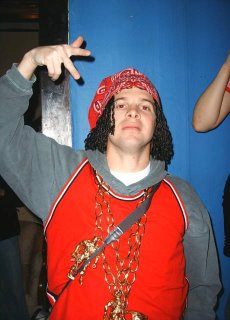 for the evening.
for the evening.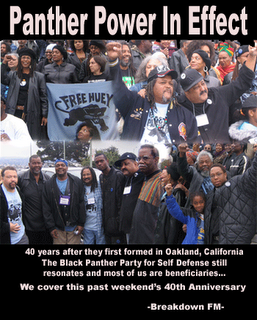
 full funding from the University.
full funding from the University. Back in the States, ya'll and feeling a little worn out. The South takes a lot out of the girl. Here are a few pics from my travels in Honduras and Nicaragua. Enjoy...
Back in the States, ya'll and feeling a little worn out. The South takes a lot out of the girl. Here are a few pics from my travels in Honduras and Nicaragua. Enjoy...
 So you thought a colored girl from the U.S. couldn't hang in the Global South? Think again, kids. In the communities of the Territorio Garifuna there is no electricity, running water within people's homes, or the comforts we take for granted at home like washing machines and dryers. So you adjust and find that you can manage just fine without them.
So you thought a colored girl from the U.S. couldn't hang in the Global South? Think again, kids. In the communities of the Territorio Garifuna there is no electricity, running water within people's homes, or the comforts we take for granted at home like washing machines and dryers. So you adjust and find that you can manage just fine without them.
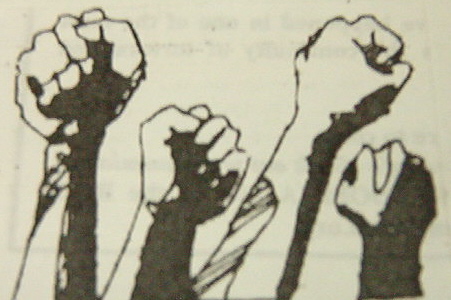 in community:
in community: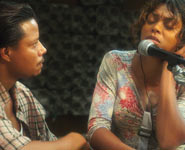


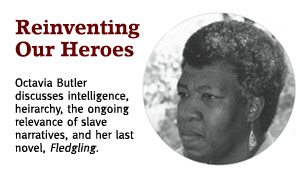
 Cuz' deep down we're all dirty...
Cuz' deep down we're all dirty...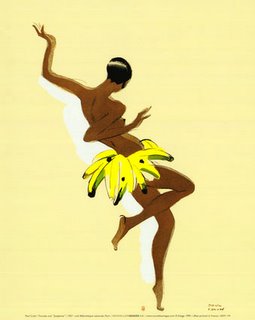
And so I have to know if it is possible to sex up this blog with better layout and my eye-catching design.
It's past midnight ya'll. Just humor me.


